2019 OAA Award Recipient Biographies
Helen Gigley
Computing for the Common Good
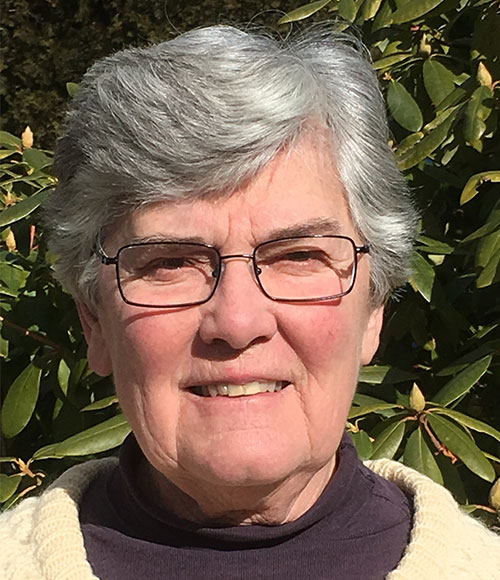 Dr. Helen Gigley began her computer science career training blind people to program at the University of Cincinnati Medical School after graduating with double BS degrees in mathematics and education from the University of Cincinnati.
Dr. Helen Gigley began her computer science career training blind people to program at the University of Cincinnati Medical School after graduating with double BS degrees in mathematics and education from the University of Cincinnati.
Dr. Gigley taught at the University of New Hampshire until 1986 before joining the National Science Foundation as Deputy Division Director for Computer and Computational Research. She later served as Program Officer for the Artificial Intelligence Program.
As a civilian employee of the U.S. Navy, she worked as the first Head of the Human-Computer Interaction (HCI) Laboratory at the Naval Research Laboratory, and then later served as Program Manager for HCI at the Office of Naval Research.
Following a detail to the National Coordination Office for Networking and Information Technology Research and Development, Dr. Gigley worked for the Intelligence Community at the National Virtual Translation Center.
Dr. Gigley's research in computational neurolinguistics spans interdisciplinary areas of artificial intelligence, neuroscience, linguistics, psycholinguistics, cognitive science, and aphasiology. She is the author of more than 35 papers and has been recognized as a Senior Member by the Association for the Advancement of Artificial Intelligence.
Dr. Gigley developed one of the first high school computer science classes in Greenfield, MA, and taught the course until 1967, when she enrolled at the University of Massachusetts Amherst. At UMass, she earned her MS & PhD degrees in computer science in 1969 and 1982, respectively.
Matthew B. Dwyer
Outstanding Achievement in Research
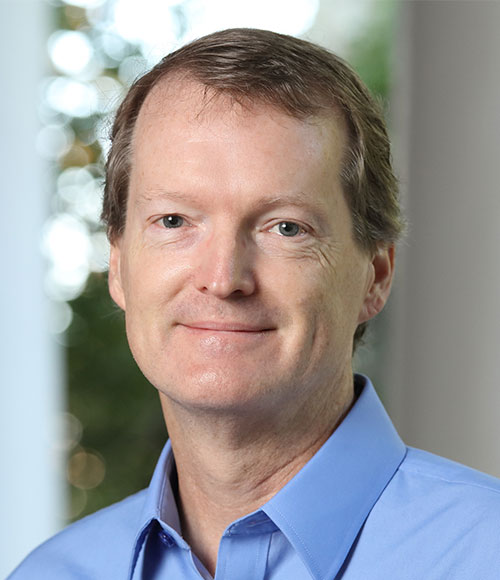 Matthew B. Dwyer is a John C. Knight faculty fellow and computer science professor at the University of Virginia. He is currently exploring methods to assure the dependability of autonomous systems built from diverse component sources. His prior work has improved and applied a wide range of formal reasoning frameworks to programs, such as model checking, symbolic execution, and abstract interpretation.
Matthew B. Dwyer is a John C. Knight faculty fellow and computer science professor at the University of Virginia. He is currently exploring methods to assure the dependability of autonomous systems built from diverse component sources. His prior work has improved and applied a wide range of formal reasoning frameworks to programs, such as model checking, symbolic execution, and abstract interpretation.
Dwyer previously served as a computer science professor at the University of Nebraska for fourteen years, and department chair for the last five. He also served for a decade as an associate professor and assistant professor at Kansas State University, and was a 2018 David Lorge Parnas Fellow at the Lero software research center in Ireland. He has taught programming workshops to elementary school students, middle school students, and Girl Scouts.
Dwyer has received numerous awards and honors, including being elevated to fellow of the IEEE in 2013. He has received three Distinguished Paper Awards and an Impact Paper Award from ACM SIGSOFT, an ICSE Most Influential Paper Award, and an FSE Test of Time award. He was honored as an ACM Distinguished Member in 2007.
Dwyer received a BS in electrical engineering from the University of Rochester in 1985, an MS in computer science from UMass Boston in 1989, and his PhD in computer science from UMass Amherst in 1995.
Panos K. Chrysanthis
Outstanding Achievement in Education
P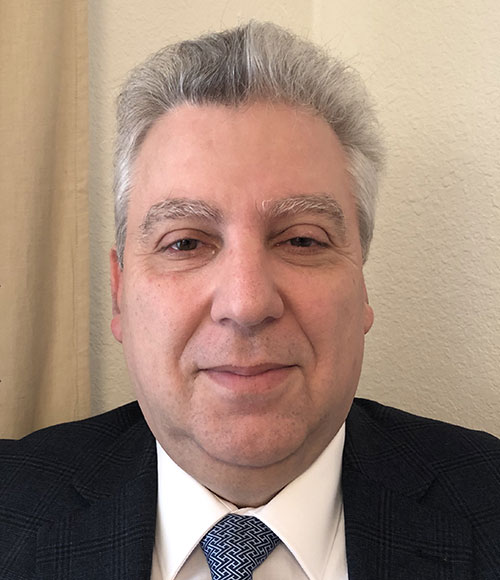 anos Kypros Chrysanthis is a professor of computer science and a founder of the Advanced Data Management Technologies Laboratory at the University of Pittsburgh. He is also an adjunct professor at Carnegie-Mellon University and the University of Cyprus.
anos Kypros Chrysanthis is a professor of computer science and a founder of the Advanced Data Management Technologies Laboratory at the University of Pittsburgh. He is also an adjunct professor at Carnegie-Mellon University and the University of Cyprus.
Chrysanthis’s research interests lie within the areas of data management (big data, databases, data streams, and sensor networks), distributed and mobile computing, workflow management, operating systems and real-time systems. In 1995, he received a National Science Foundation CAREER Award for his investigation on the management of data for mobile and wireless computing.
His editorial service includes The VLDB Journal (2001-2007), IEEE Transactions on Knowledge and Data Engineering (2012-2017) and Distributed and Parallel Databases (2011-present). Chrysanthis is an ACM Distinguished Scientist and a Senior Member of IEEE. He is a highly sought-after presenter and panelist, and frequently participates in symposiums at top universities and institutions in North America, Asia, Europe, and Oceania. He has been honored with seven teaching awards and in 2015 received the University of Pittsburgh's provost award for excellence in mentoring doctoral students.
Chrysanthis received his B.S. degree in physics with a concentration in computer science from the University of Athens, Greece in 1982. He earned his MS and PhD degrees (computer science and information science, 1986 and 1991) from the University of Massachusetts Amherst.
Arvind Nithrakashyap
Outstanding Achievement in Entrepreneurship
 Arvind Nithrakashyap is the co-founder and CTO of Rubrik, a market-leading cloud data management company based in Palo Alto, CA, where he focuses on hiring world-class engineers to build next-generation cloud infrastructure.
Arvind Nithrakashyap is the co-founder and CTO of Rubrik, a market-leading cloud data management company based in Palo Alto, CA, where he focuses on hiring world-class engineers to build next-generation cloud infrastructure.
Nithrakashyap began his career at Oracle in 1997, where he wrote C code for a decade and addressed major concerns with scalability and performance. During his time there, he built a number of the company’s core database technologies and co-developed the Exadata storage platform.
After Oracle, Nithrakashyap ran the fuzzy match engine for Purisma, a customer management startup that was later acquired by Dun & Bradstreet, and built Rocket Fuel’s 30-person, real-time advertising infrastructure team. By the time he left to co-found Rubrik, the system his team built was handling 50 billion requests a day with a response time of 50-60 milliseconds.
Nithrakashyap grew up in Chennai, India, earned a BTech in computer science from the Indian Institute of Technology Madras in 1995, and a MS in computer science from the University of Massachusetts Amherst in 1997, where he focused on the synthesis between software engineering practices and databases.
Paul Scorza
Outstanding Achievement in Management
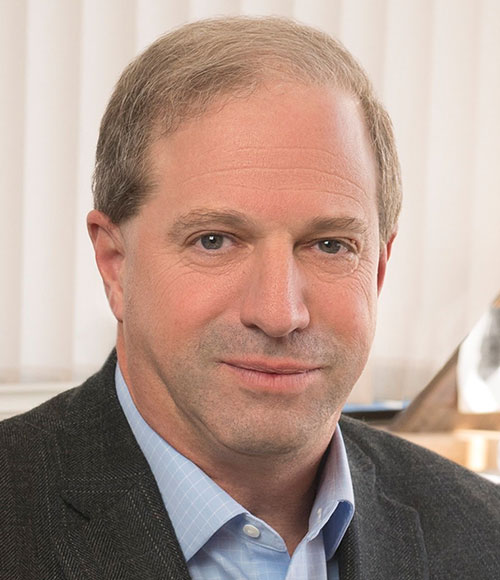 Paul Scorza is the executive vice president of information technology and chief information officer for Retail Business Services, the services company of Ahold Delhaize USA, which serves a portfolio of local grocery brands spanning 23 U.S. states and more than 2,000 stores. Scorza oversees the full scope of their IT function, including software development, support, hardware purchasing, networks, data centers, and telephone functions.
Paul Scorza is the executive vice president of information technology and chief information officer for Retail Business Services, the services company of Ahold Delhaize USA, which serves a portfolio of local grocery brands spanning 23 U.S. states and more than 2,000 stores. Scorza oversees the full scope of their IT function, including software development, support, hardware purchasing, networks, data centers, and telephone functions.
Scorza began his career with IBM in 1981 as a programmer. Until 2013, he took on various roles of additional responsibility, from project manager to director and vice president. Paul held three vice president positions at IBM, including World Wide Application Solutions Delivery, World Wide Transformation Executive for the CIO Office, and World Wide Sector Leader for the IBM Global Account Infrastructure.
Scorza serves as a board member of the Ahold's Family Foundation, a charity dedicated to serving children with cancer, and as the executive sponsor of Ahold's Abilities Business Resource Group, which supports customers, associates, and family members with disabilities. Scorza is also a board member for The Springboard Foundation, a non-profit which provides scholarships to college and university students with disabilities.
Scorza earned a BS in computer science from the University of Massachusetts Amherst in 1981, and a combined MBA and MS in computer science from Marist College in 1987. For several years, he returned to UMass Amherst to serve as “professor for a day,” through which he has educated thousands of students in the Isenberg School of Management on the roles and responsibilities of a CIO.
Quentin Clark
Outstanding Achievement in Management
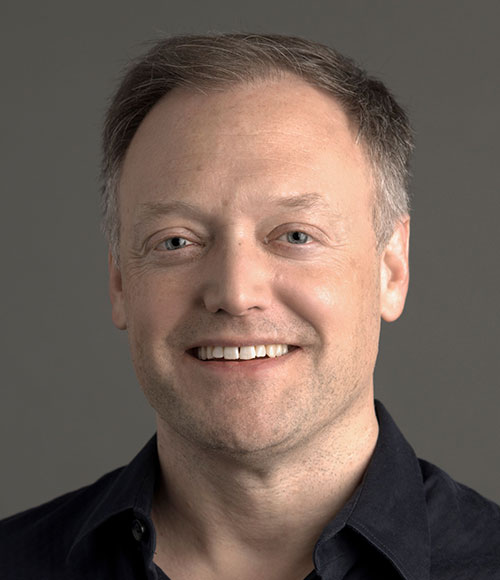 Quentin Clark is chief technology officer at Dropbox, where he leads strategy and execution efforts, drawing on his experience in business applications, large scale infrastructure, and machine learning.
Quentin Clark is chief technology officer at Dropbox, where he leads strategy and execution efforts, drawing on his experience in business applications, large scale infrastructure, and machine learning.
Previously, Clark worked as the chief business officer at SAP SE, where he built SAP’s current growth strategy and created a business unit for incubation, SAP.io, as well as chief technology officer, where he drove the direction and vision of future technologies, including a focus on cloud strategy and big data strategy.
Clark worked for over twenty years at Microsoft, most recently serving for eight years as corporate vice president of the Data Platform Group, where he oversaw the design and delivery of the entire family of data products, including the Microsoft SQL Server, Power BI, BI in Microsoft Office, data capabilities in Azure, NoSQL and Hadoop offerings. During his leadership, SQL Server became a market-leading, multibillion-dollar business that delivered double-digit growth.
In addition to these positions, Clark has also worked extensively in product strategy, definition and planning, engineering, organization, and business development. He currently serves on the boards of Highfive Technologies, Minio, Inc., and Coda.
Clark graduated with a BS in physics from the University of Massachusetts Amherst in 1994, where he completed most of the undergraduate computer science curriculum as well.
Jay M. Wong
Outstanding Achievement by a Young Alum
 Jay M. Wong co-founded Southie Autonomy in 2017, where he now leads the engineering effort in building a “no-code” robotics automation system, which uses augmented reality and artificial intelligence to enable human operators to quickly redeploy robots without any computer skills.
Jay M. Wong co-founded Southie Autonomy in 2017, where he now leads the engineering effort in building a “no-code” robotics automation system, which uses augmented reality and artificial intelligence to enable human operators to quickly redeploy robots without any computer skills.
Prior to the creation of Southie, Wong worked as a roboticist at Draper and held visiting scientist roles at MIT and Harvard University, where he served as an autonomy expert on a large research project to mature autonomous mobile manipulation technology. While at Draper, he served as project lead for the laboratory’s cloud robotics research initiative.
Wong’s work as both an entrepreneur and roboticist has earned several notable awards, including the KUKA Innovation Award and the Mercedes-Benz Innovation Award.
Wong was a Bay State Fellow at the University of Massachusetts Amherst, where he earned his BS and MS degrees in Computer Science in 2014 and 2016, respectively. During that time, he performed research at the university’s Laboratory for Perceptual Robotics and at NASA Langley Research Center.